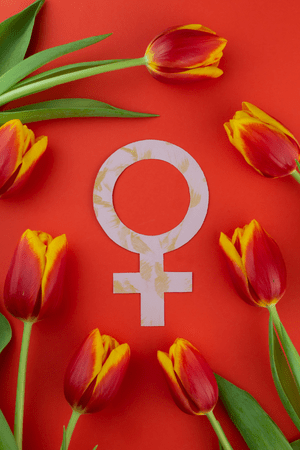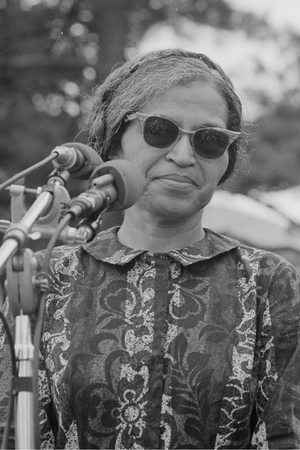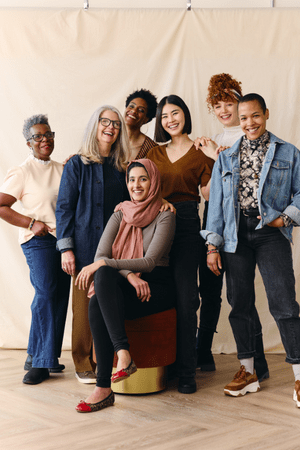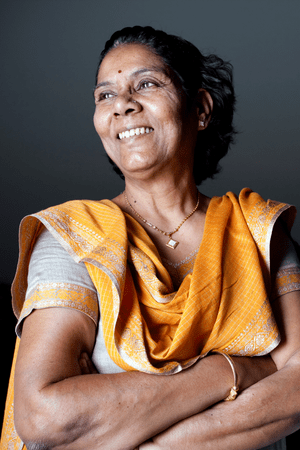 The seeds of Women’s History Month were planted in 1981, but over 40 years later we can still be surprised by how much we don’t know about our own human history. The focus on women’s history during the month of March offers a fun opportunity to go beyond traditionally male-dominated stories, and put women back into history.
The seeds of Women’s History Month were planted in 1981, but over 40 years later we can still be surprised by how much we don’t know about our own human history. The focus on women’s history during the month of March offers a fun opportunity to go beyond traditionally male-dominated stories, and put women back into history.
“But I know about plenty of women,” you might protest as you think of Harriet Tubman, Ruth Bader Ginsburg, Marie Curie, Rosa Parks, Florence Nightingale or even Malala Yousafzai. The good news is there is no end to intriguing people throughout human history to learn about and explore.
Challenge yourself this March to discover a few different women to add to your understanding of the world. Browse the following resources to find some new-to-you information. Maybe you will be inspired to share your newfound knowledge.
You might find your interest lies in discovering young women just beginning to make their impact on the world in different ways, like Mari Copeny, Alice Oseman or Greta Thunberg. Or perhaps you want to dive into historical obscurities, like Jane Sharp who published her Midwives Book with detailed anatomical information in 1671, or Mary Jones who was arrested for grand larceny in 1836. Local history has depths to explore as well: take a look at the Michigan Women’s Hall of Fame Timeline for quick tidbits about Michigan women of note.
Read on to discover more women whose stories are included in our collections.
Quick Picks
Looking for speedy overviews with great illustrations? Try these picture books about oft overlooked women. The children’s biography collection is a great place to learn a little bit more about a lot of different subjects.
The Angel of Santo Tomas – Fe del Mundo's sister dreamt of becoming a doctor, which was a big dream for a girl in the Philippines in the early 1900s. When her sister dies, young Fe vows to take her place, a promise she carries with her the rest of her life. In 1936, she becomes the first woman and person of Asian descent to study at Harvard Medical School.
The Extraordinary Suzy Wright: A Colonial Woman on the Frontier – Introduces Suzy Wright, a Quaker who helped settle the Pennsylvania frontier, defended the rights of Native Americans, and provided legal counsel to her neighbors.
She Sang for India – Pique your interest in the fight for independence and freedom through this picture book biography about M.S. Subbulakshmi, a powerful Indian singer who advocated for justice and peace through song.
Explore the full list of items in Women in History and Around the World: Picture Book Biographies.
Know These Names
Some of these people might be more familiar than others, but try one of these biographies to broaden your understanding of a familiar woman, or expand your knowledge to new and exciting people. Proceed with caution: many of these woman defy conventional expectations.
All In: An Autobiography – In this spirited account, Billie Jean King details her lifelong journey to find her true self. She recounts her groundbreaking tennis career, and poignantly recalls the cultural backdrop including the women’s movement, the assassinations and anti-war protests of the 1960s and civil rights activism.
Frida in America – Mexican artist Frida Kahlo adored adventure. In November 1930, she was thrilled to realize her dream of traveling to the United States to live in San Francisco, Detroit and New York. Still, leaving her family and her country for the first time was monumental. This is the riveting story of how her time in the United States transformed Frida Kahlo into the artist we know today.
Never Caught: The Washington’s Relentless Pursuit of their Runaway Slave – Though Ona Judge lived a life of relative comfort, the few pleasantries she was afforded were nothing compared to freedom, a glimpse of which she encountered first-hand in Philadelphia. So, when the opportunity presented itself, Judge left everything she knew to escape to New England. Yet freedom would not come without its costs. If you do not know the name of Ona Judge, you should.
Explore the full list of items in Lives of Women: Biographies and Autobiographies.
Power in Numbers
Individual names might stick in our memories, but there’s no question that groups of people can make an outsized impact. These groups of women have collectively impacted our history, and their stories make for fascinating reading. Doctors, soldiers, activists, athletes and more, these women might not have name recognition, but were part of groups or movements of note or infamy.
Brave Hearted: The Women of the American West 1836-1880 – Hard-drinking, hard-living poker players and prostitutes; wives and mothers traveling 2,500 miles across the prairies; African-American women in search of freedom; Chinese sex-workers sold openly on the docks of San Francisco; Native American women brutally displaced: all were women of resilience and courage in the face of tumultuous change.
Letters to My Weird Sisters – An autistic feminist author looks at women's history, in search of her 'weird sisters.’ Eager to discover other women who had been misunderstood in their time, she writes a series of wide-ranging letters to four 'weird sisters' from history, addressing topics including autistic parenting, social isolation, feminism, the movement for disability rights and the appalling punishments that have been meted out over centuries to those deemed to fall short of the norm.
The Three Mothers – These three mothers taught resistance and a fundamental belief in the worth of Black people to their sons, even when these beliefs flew in the face of America's racist practices and led to ramifications for all three families' safety. The fight for equal justice and dignity came above all else for the three mothers.
Explore the full list of items in Significant Squads: Women in History.
Everyday Women, Extraordinary Lives
The experiences of women are vast and varied. While similar threads might twine through women’s lives, each person has a unique combination of circumstances, disposition and perspective. Expand your own understanding of the world by diving into someone else’s narrative. Most of these memoirs are written by women today, some with more name recognition than others, but all speaking about the world as is now, or in the recent past.
Ducks: Two Years in the Oil Sands – Katie heads out west to take advantage of Alberta's oil rush—part of the long tradition of East Coasters who seek gainful employment elsewhere when they can't find it in the homeland they love so much. Katie encounters the harsh reality of life in the oil sands, where trauma is an everyday occurrence yet is never discussed.
In My Own Moccasins: A Memoir of Resilience – An unflinching account of addiction, intergenerational trauma, and the wounds brought on by sexual violence. It is also the story of sisterhood, the power of ceremony, the love of family and the possibility of redemption. A personal story set in a wider historical and political context. Another important read is Our Voice of Fire by Brandi Morin, available through MeL, about surviving the proliferation of missing and dead Indigenous women.
Year of the Tiger: An Activist’s Life – Drawing on a collection of original essays, previously published work, conversations, graphics, photos, commissioned art by disabled and Asian American artists and more, Alice uses her unique talent to share an impressionistic scrapbook of her life as an Asian American disabled activist, community organizer, media maker and dreamer.
Explore the full list of items in Ordinary Women: Explore Lives Through Memoir.
But Wait, There’s More
The stories of women have long been written out of our everyday body of knowledge, to the extent that we don’t always realize they are missing. The following books shine a bright light on the absence of women and female influences in ways that might surprise you, and are not about specific women, but about how easy it is to ignore what (or who) is right in front of us.
Bitch: On the Female of the Species – The story of evolution successfully ignored females for well over a century. Here a leading zoologist takes a fierce and often humorous look at the females of the animal kingdom, and puts down the notion among evolutionary biologists that males are more vital to evolution, or indeed, that they are even more interesting.
Invisible Women: Data Bias in a World Designed for Men – From economic development, to healthcare, to education and public policy, we rely on numbers to allocate resources and make crucial decisions. The numbers we rely on, however, do not take gender into account, treating men as the default. This bias and discrimination are baked into our systems to the extent that anyone who does not identify as male pays for this bias in time, money and even with their lives.








Add a comment to: Herstory: Women You Should Know About